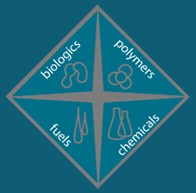Convergence
It all starts with oil. Our economy runs on it. It drives us to work. Keeps our homes warm in winter and cool in summer. Our food is fertilized with oil derived chemicals. We know how to find it. We know how to drill it. We know how to squeeze it out of shale, scrub it out of sand and transport it around the world. We have developed amazing technology for processing, converting, and transforming it. Many chemicals and almost all polymers are made from it. Oil is in the fiber of your clothes. Oil is your phone, your iPod, your laptop, your car, your sports equipment. Oil is on, in and around us. Our lifestyle and standard of living would not exist without it. Oil is convenient. It flows. It is literally plastic in our hands.
It's a good thing we will not run out of oil soon. The interrelatedness of petroleum, agriculture and human population is undeniable. Yet, there is only so much oil in the ground. If prices increase; if supplies become unpredictable; or if we ever really do run out, the results to the economy, to human survival, would be catastrophic. Under these circumstances there are no such things as "Green", "Greentech" or "Renewable" solutions. In a time of unpredictability, scarcity or absence, these are not alternatives, they are the only option.
In a time beyond oil, the future success of global manufacturing will depend on the arc of industrial biology. Expensive tools, used previously for research and pharmaceutical commercialization - now faster, better and cheaper will lead a shift from petroleum raw materials to those derived from agriculture, waste and specifically designed energy crops. Enzymes and genetically modified organisms will replace pore based metallic catalysts and processing will shift from petroleum refineries to biorefineries. In this world of convergence, unlikely raw materials will be processed into chemicals, polymers and fuel. But the challenges remain - accomplishing these things cost effectively within a time frame necessary to prevent economic instability. Whether we talk about car parts, carpets, cosmetics, or synthetic gasoline and diesel, these changes will touch us all.
